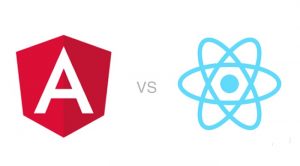Both React and Angular are renowned throughout the industry as excellent frameworks. When you take into consideration that both were developed by two of the biggest players out there, Facebook (React) and Google (Angular), the reasons for that excellence become abundantly clear.
However, many developers and businesses still tend to choose one language or another because of hype and not because of real, calculated considerations; and once they decide on a framework, they typically continue with the fallacy of supporting it no matter what, and regardless of other better options that are available (such as React or Angular).
From our own experience at Galil Software, we can vouch for the above scenario. And when it happens repeatedly, it’s perhaps time (for both us and other developers out there) to step back – even for just a second – and think again.
Our own experiences with React and Angular have taught us that it basically comes down to the following:
What is more important to your business: performance…or time to market?
Our experience with React shows that its advantage lies in its impressive performance, largely due to its Virtual DOM (a node tree that lists elements and their attributes and content as objects and properties). So if performance is crucial to you, we suggest implementing React.
On the other hand, our implementations of Angular highlighted the much smaller code footprint needed to reach something that actually works, which promotes a faster working environment, and in turn, a faster TTM, a key factor for startups. Coupled with the fact that Angular is easier and friendlier to work with, developers often find it a more straight-forward framework to implement.
If you’re re-thinking your framework implementation, feel free to get in touch with us!
